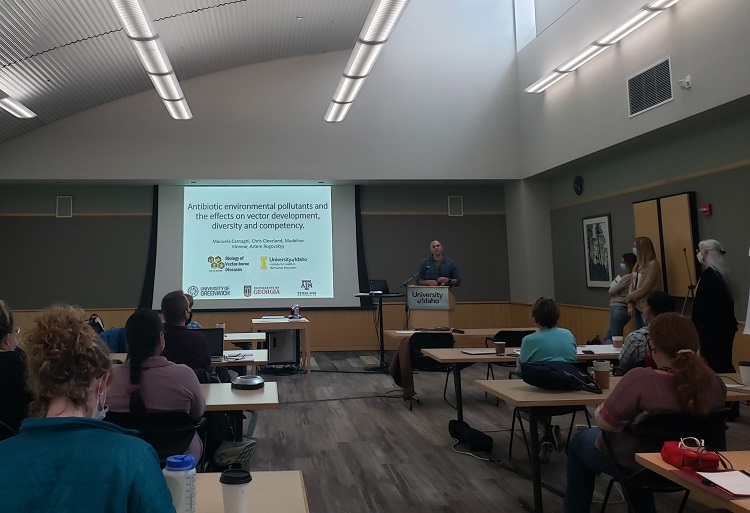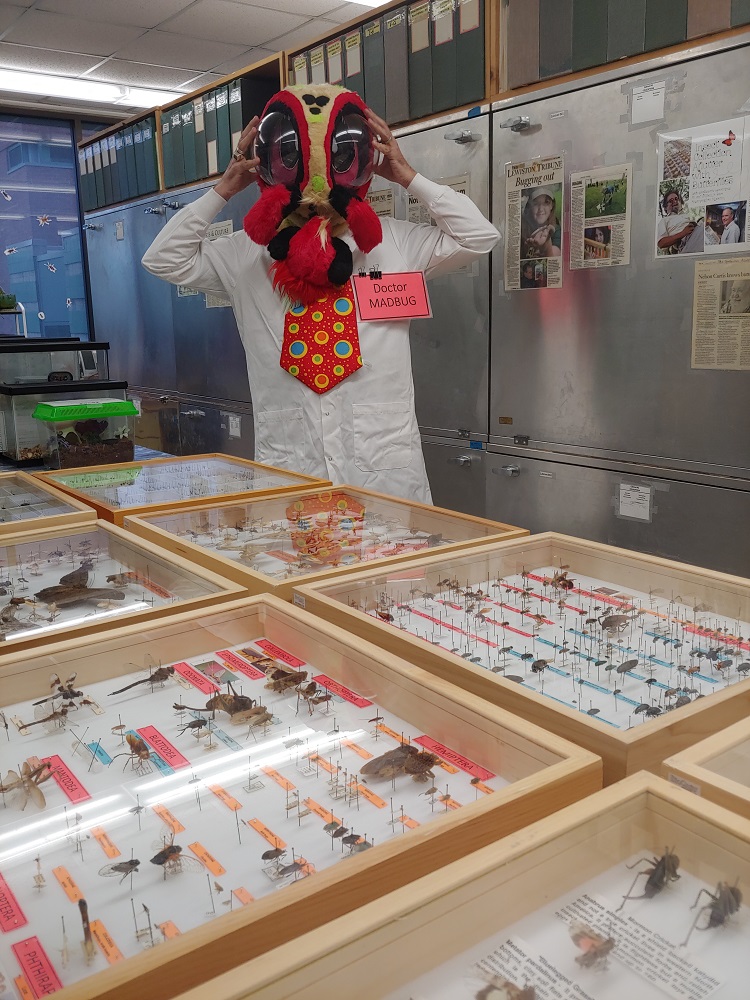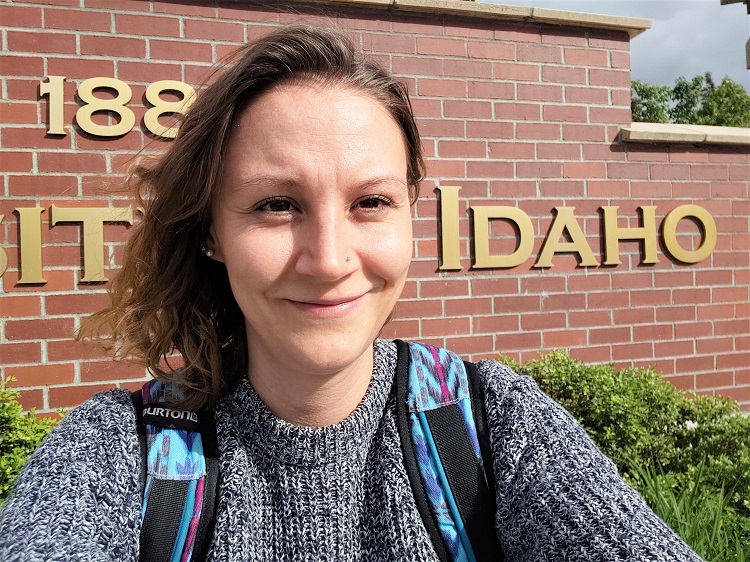Former NRI PhD student, Dr Manuela Carnaghi, recently took up a position as Professional Teaching Demonstrator for the School of Science at the University of Greenwich, where she leads laboratory classes for a range of BSc and MSc students. Alongside her burgeoning professional career, she has also won a number of academic competitions. Having accumulated a pot of prize money but constrained by ongoing Covid travel restrictions, Manuela set about planning how best to spend her winnings on broadening her scientific network and sharing her knowledge once she was able to travel again. Manuela takes up the story:
I’d recently won £3000 at the UK National Three Minute Thesis (3MT) competition – so I combined this with £500 that I’d won at the video competition of Greenwich Research and Enterprise (GRE), the University of Greenwich team responsible for supporting the development of the University’s research and knowledge exchange activities and supporting associated staff and postgraduate research student development. This allowed me to buy tickets to fly to Idaho, USA, where the Institute for Health in the Human Ecosystem at the University of Idaho was running a course, the “Biology of Vector-borne Diseases” which I was really keen to attend. I was able to pay for my travel from the UK and I also got a scholarship from the University of Idaho which covered all my other  expenses such as course fees, accommodation, food and internal travel.
expenses such as course fees, accommodation, food and internal travel.
It was a week-long course which the university usually runs once a year, but which had been interrupted by the pandemic. I was actually awarded the scholarship two years ago but had been unable to travel so I had to apply again and thankfully got it. It was aimed at students, early career researchers and post-docs from all around the world.
The aim of the course is to bring together scientists from different backgrounds working on different topics, so that they can all collaborate and share ideas on the big issues on vectors. There were around 50 of us in total, comprising experts on vectors of plant and animal diseases and others like me who work on vectors of human diseases. It was refreshing to mix with so many people from different backgrounds with different approaches.
Building on the more general information and material at the beginning, we then we moved onto the modelling field which is useful to predict the spread of a disease. We learned about the software available for different types of modelling and we used real-world problems that we had to solve.
The organisers came up with issues that were either current or historical for example, one was ‘the environmental impact of antibiotics used in farms’ and another, ‘the use of invasive species for beneficial medicinal purposes’. They divided us into multi-disciplinary groups so that we could bring our individual perspectives to exploring scientific solutions.
 It was challenging and hugely enjoyable and it reinforced how important scientific collaboration is. The international nature of the cohort meant that people were able to bring a personal view to problem solving, and the networking opportunities were great. The fact that we were all together for over a week provided lots of great opportunities to meet everyone and exchange information.
It was challenging and hugely enjoyable and it reinforced how important scientific collaboration is. The international nature of the cohort meant that people were able to bring a personal view to problem solving, and the networking opportunities were great. The fact that we were all together for over a week provided lots of great opportunities to meet everyone and exchange information.
After returning from Idaho, brimming with ideas and enthusiasm, I then took up an invitation to go to France to speak at a conference in Montpellier University on my specialist topic of vector behaviour. The name of the conference was "Behaviour of Arthropod Disease Vectors: A Source for Biorational Pest Control in a One Health Context", and it was organised by MAK’IT, the Montpellier Advanced Knowledge Institute on Transitions.
I was honoured to have been asked (the email invitation arrived the same day as my viva, so I remember feeling quite overwhelmed!) and I presented as a Doctor rather than a PhD student for the first time. My NRI colleagues, including Dr Dan Bray, Dr Lionel Feugere and Professor Richard Hopkins were also there so I felt very supported.
Feugere and Professor Richard Hopkins were also there so I felt very supported.
I presented my thesis in my 20-minute speaking slot – I basically condensed the results of my PhD which was on malaria mosquito behaviour, specifically the responses when exposed to the host’s cues. Afterwards I was approached by a couple of scientists who were very interested in my work and asked me lots of questions – that felt great!
I still have some of the prize money left so I’m currently searching for more opportunities to travel to work on my skills and professional development and get the most out of this incredible opportunity by doing lots more networking at conferences. Watch this space!
To find out more about:

